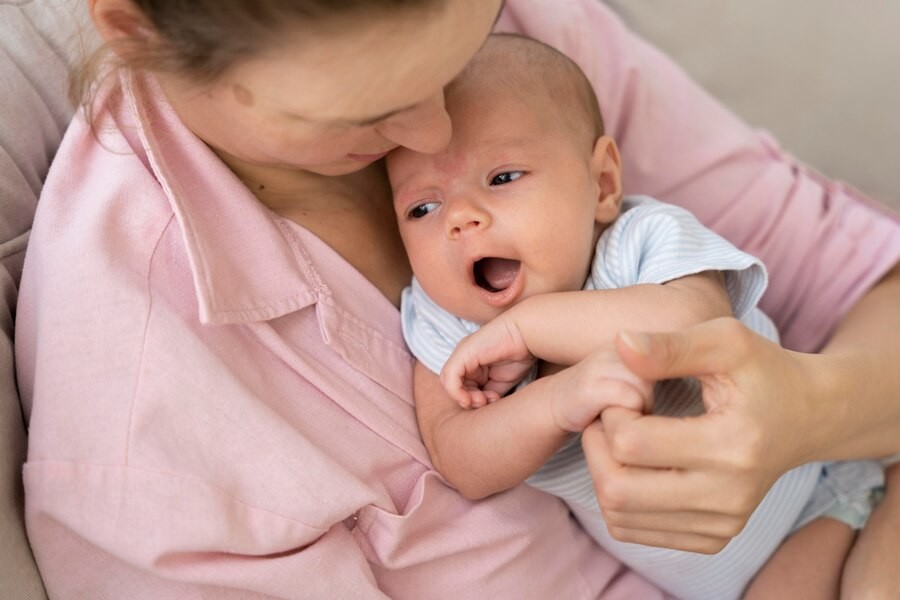Jet lag in infants and young children can occur on long journeys, such as the Hajj pilgrimage. This can undoubtedly affect the solemnity of worship. This article discusses how to overcome jet lag in infants and young children.
Recognizing the signs of jet lag in your little one
Babies and young children are more prone to jet lag because their biological clocks are more rigid than those of adults. Children also typically rely heavily on a consistent daily routine for sleeping, eating, and other activities. A significant shift in the time zone can disrupt this routine.
Jet lag is a temporary condition. Jet lag in infants and children is typically characterized by several factors, including:
- Difficulty falling asleep at regular bedtime.
- Frequent waking during the night and poor sleep quality.
- Needing longer naps than usual.
- Eating more or less than usual.
- Fussiness and crying easily.
- Appearing lethargic and lackluster.
- Being less active than usual.
- Experiencing abdominal pain or discomfort.
- Changes in bowel or urination patterns.
- Growing clingy and demanding more attention.
- Confusion about the time of day or night.
Tips to overcome jet lag in infants and children
Jet lag is temporary and lasts only a few days in infants and toddlers. Here are some suggested ways to overcome jet lag in infants and younger children while on Hajj:
- Prepare the child's sleep schedule gradually, starting a few days before the Hajj pilgrimage.
- During the flight, try to get the baby or child to sleep according to the sleeping time at the destination.
- Adjust the child's feeding and sleeping schedules to the local time as soon as possible.
- Taking the child outside during the day can help reset their biological clock.
- Maintain the same bedtime ritual as at home to provide a sense of comfort.
- Ensure that your child takes enough naps to avoid excessive fatigue.
- Limit naps to a reasonable length so that they do not disrupt nighttime sleep.
- Create a relaxing and comfortable sleeping environment for your child.
Before taking your baby on a long trip, such as the Hajj, you should wait until they are about 2–3 months old. This lowers the risk of contracting infectious diseases at the airport or on the plane, as well as the risk of jet lag or other health issues.
Before embarking on a long trip, it is also recommended that you consult a pediatrician to ensure that your baby or child is healthy and prepared to fly.
Do you have further questions about the problem of jet lag in infants and children? You can make use of the consultation features that are available in the Ai Care application by downloading the Ai Care application from the App Store or Play Store.
Looking for more information about pregnancy, breastfeeding, and the health of women and children? Click here!
- dr Nadia Opmalina
UK Health Centre (2024). Jet Lag and Babies. Available from: https://www.healthcentre.org.uk/pharmacy/melatonin-jet-lag-and-babies.html
Jennifer Kelly Geddes (2022). How to Manage Jet Lag in Babies. Available from: https://www.whattoexpect.com/first-year/sleep/jet-lag-in-babies/
NHS UK (2023). Jet lag. Available from: https://www.nhs.uk/conditions/jet-lag/
Children's Clinic International. A Paediatrician’s Guide on Beating Jet Lag in Kids. Available from: https://ccintl.sg/a-paediatricians-guide-on-beating-jet-lag-in-kids/
Cleveland Clinic (2024). Jet Lag. Available from: https://my.clevelandclinic.org/health/diseases/12781-jet-lag
Claire McCarthy, MD, FAAP & Jennifer Shu, MD, FAAP (2024). Flying with Baby: Parent FAQs. Available from: https://www.healthychildren.org/English/safety-prevention/on-the-go/Pages/Flying-with-Baby.aspx
Kathleen Felton (2024). 40 tips for traveling with your baby or toddler. Available from: https://www.babycenter.com/family/travel/traveling-with-a-newborn-to-8-month-old_7157












